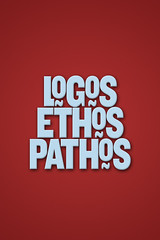These terms are the AP English Language and Composition Terms
| 10528292611 | ad hominem argument | From the Latin meaning "to or against the man," this is an argument that appeals to emotion rather than reason, to feeling rather than intellect. |  | 0 |
| 10528292612 | Allegory | The device of using character and/or story elements symbolically to represent an abstraction in addition to the literal meaning. |  | 1 |
| 10528292613 | Alliteration | The repetition of sounds, especially initial consonent sounds in two or more neighboring words (as in "She sells sea shells"). | 2 | |
| 10528292614 | allusion | a direct or indirect reference to something that is presumably commonly known, such as an event, book, myth, place, or work of art. They can be historical, literary, religious, or mythical. |  | 3 |
| 10528292615 | ambiguity | multiple meanings, either intentional or unintentional, or a word, phrase, sentence, or passage |  | 4 |
| 10528292616 | analogy | a similarity or comparison between two different things or the relationship between them. An analogy can explain something unfamiliar by associating it with, or pointing out its similarity to, something more familiar. |  | 5 |
| 10528292617 | antecedent | The word, phrase, or clause referred to by a pronoun. |  | 6 |
| 10528292618 | antithesis | the juxtaposition of contrasting words or ideas to give a feeling of balance |  | 7 |
| 10528292619 | aphorism | A terse statement of known authorship that expresses a general truth or moral principle |  | 8 |
| 10528292620 | apostrophe | a figure of speech that directly addresses an absent or imaginary person or personified abstration, such as liberty or love. |  | 9 |
| 10528292621 | atmosphere | the emotional mood created by the entirety of a literary work, established partly by the setting and partly by the author's choice of objects that are desired. |  | 10 |
| 10528292622 | caricature | a representation, espically pictoral or literary, in which the subject's distinctive feature or peculiarities are deliberately exaggerated to produce a comic or grotesque effect |  | 11 |
| 10528292623 | chiasmus | a statement consisting of two parallel parts in which the second part is structurally reversed ("Susan walked in, and out rushed Mary.") |  | 12 |
| 10528292624 | clause | a grammatical unit that contains both a subject and a verb |  | 13 |
| 10528292625 | colloquialism | slang or informality in speech or writing which usually includes local or regional dialects. |  | 14 |
| 10528292626 | conceit | A fanciful expression, usually in the form f an extended metaphor or surprising analogy between seemingly dissimilar objects. A conceit displays the intellectual cleverness due to the unusual comparison being made |  | 15 |
| 10528292627 | connotation | the nonliteral, associative meaning of a word; the implied, suggessted meaning. |  | 16 |
| 10528292628 | denotation | the dictionary definition of a word |  | 17 |
| 10528292629 | diction | related to style, diction refers to the writer's word choice, especially with regar dto their correctness, clearness, or effectiveness. |  | 18 |
| 10528292630 | didactic | "instructive" with the primary aim of teaching or instructing moral or ethical principles. |  | 19 |
| 10528292631 | euphemism | overused expressions "Raining cats and dogs" |  | 20 |
| 10528292632 | extended metaphor | a metaphor developed at great length, occurring frequently in or throughout a work |  | 21 |
| 10528292634 | figure of speech | device used to produce figurative language like: similie, hyperbole, irony, metaphor, oxymoron, paradox, personification |  | 22 |
| 10528292636 | hyperbole | deliberate exaggeration or overstatement |  | 23 |
| 10528292637 | imagery | image created in the mind from something read |  | 24 |
| 10528292639 | irony/ironic | contrast between what is stated and what is meant |  | 25 |
| 10528292640 | verbal irony | words mean literally the opposite of the writer's/speaker's true meaning. | 26 | |
| 10528292641 | situational irony | events turn out the opposite of what is expected. What the characters and readers think ought to happen does not acutally happen |  | 27 |
| 10528292642 | dramatic irony | facts/events are unknown to a character in a play but known to the reader/audience member |  | 28 |
| 10528292643 | juxtaposition | placing dissimilar items, descriptions, or ideas close together or side by side, espically for comparison or contrast |  | 29 |
| 10528292644 | metaphor | comparison of two dissimilar things without using the words like or as |  | 30 |
| 10528292645 | metonymy | substituting the name of an attribute or feature for the name of the thing itself (as in 'they counted heads') |  | 31 |
| 10528292649 | oxymoron | a figure of speech consisting of two apparently contradictory terms (Jumbo Shrimp) |  | 32 |
| 10528292650 | paradox | (logic) a self-contradiction (EX: I always lie' is a paradox because if it is true it must be false") |  | 33 |
| 10528292651 | parallelism | similarity of structure in a pair or series of related words, phrases, or clauses |  | 34 |
| 10528292652 | parody | a composition that imitates somebody's style in a humorous way |  | 35 |
| 10528292653 | pedantic | tending to show off one's learning |  | 36 |
| 10528292654 | periodic sentence | a complex sentence in which the main clause comes last and is preceded by the subordinate clause |  | 37 |
| 10528292657 | first person point of view | a character in the story is actually telling the story himself/herself (uses the pronoun I) |  | 38 |
| 10528292658 | second person point of view | the narrator tells the story using the second person pronouns to address the reader (you, your, yours) used VERY INFREQUENTLY |  | 39 |
| 10528292659 | third person point of view | This is a point of view in which the narrator is outside the story and reveals the thoughts of only one character, who is referred to as "he" or "she." | 40 | |
| 10528292660 | predicate adjectives | one type of subject complement- an adjective, group of adjectives, or adjective clause that follows a linking verb |  | 41 |
| 10528292661 | predicate nominative | a noun or pronoun that follows a linking verb and renames or identifies the subject |  | 42 |
| 10528292662 | prose | ordinary speech or writing without rhyme or meter; referring to speech or writing other than verse |  | 43 |
| 10528292664 | rhetoric | the art of using language effectively and persuasively |  | 44 |
| 10528292665 | rhetorical appeal | the persuasive device by which a writer tries to sway the audience's attention and response to any given work |  | 45 |
| 10528292666 | logos | an appeal based on logic or reason | 46 | |
| 10528292667 | ethos | The appeal of a text to the credibility and character of the speaker, writer, or narrator | 47 | |
| 10528292668 | pathos | emotional appeal |  | 48 |
| 10528292669 | rhetorical modes | exposition, description, narration, argumentation |  | 49 |
| 10528292672 | satire | form of literature in which irony, sarcasm, and ridicule are employed to attack human vice and folly |  | 50 |
| 10528292673 | simile | a figure of speech that expresses a resemblance between things of different kinds (usually formed with 'like' or 'as') (EX: Her breath smells like garbage.) |  | 51 |
| 10528292674 | style | a way of expressing something (in language or art or music etc.) that is characteristic of a particular person or group of people or period |  | 52 |
| 10528292675 | subject complement | The name of a grammatical unit that is comprised of predicate nominatives and predicate adjectives |  | 53 |
| 10528292676 | subordinate clause | a clause in a complex sentence that cannot stand alone as a complete sentence and that functions within the sentence as a noun or adjective or adverb |  | 54 |
| 10528292677 | syllogism | a three-part deductive argument in which a conclusion is based on a major premise and a minor premise ("All men are mortal; Socrates is a man; therefore, Socrates is mortal.") |  | 55 |
| 10528292678 | symbolic | expressed by the representations of something else by association, resemblance, or convention (EX: A band on the left ring finger is symbolic of the contract of marriage) |  | 56 |
| 10528292679 | syntax | the rules for combining words into grammatically sensible sentences in a given language |  | 57 |
| 10528292680 | theme | The main idea or meaning of a text. Often, this is an insight about human life revealed in a literary work |  | 58 |
| 10528292681 | thesis | The sentence that directly expresses the author's opinion, purpose, meaning, or proposition. |  | 59 |
| 10528292682 | tone | the quality of something (an act or a piece of writing) that reveals the attitudes and presuppositions of the author |  | 60 |
| 10528292685 | litotes | indirect understatement for rhetorical effect (especially when expressing an affirmative by negating its contrary) Ex. "saying 'I was not a little upset' when you mean 'I was very upset' is an example of litotes" | 61 | |
| 10528292687 | Anaphora | The repetition of the same word or phrase at the beginning of successive clauses or verses. | 62 | |
| 10528292688 | Concession | An argumentative strategy by which a speaker or writer acknowledges the validity of an opponent's point. | 63 | |
| 10528292689 | Coordination | The grammatical connection of two or more ideas to give them equal emphasis and importance. Contrast with subordination. | 64 | |
| 10528292690 | Epiphora | The repetition of a word or phrase at the end of several clauses. (Also known as epistrophe.) | 65 | |
| 10528292691 | Fallacy | An error in reasoning that renders an argument invalid. | 66 | |
| 10528292692 | Refutation | The part of an argument wherein a speaker or writer anticipates and counters opposing points of view. | 67 | |
| 10528292693 | Synecdoche | A figure of speech in which a part is used to represent the whole or the whole for a part. | 68 | |
| 10528292694 | Voice | (1) The quality of a verb that indicates whether its subject acts (active voice) or is acted upon (passive voice). (2) The distinctive style or manner of expression of an author or narrator. | 69 | |
| 10528292696 | Hendiadys | a figure of speech in which an idea is expressed by giving two components as though they were independent and connecting them with a coordinating conjunction rather than subordinating one part to the other. *example - 'try and do better" instead of "try to do better." | 70 | |
| 10528292697 | Epizeuxix | Repetition of a word for emphasis (usually with no words in between). | 71 | |
| 10528292698 | Anadiplosis | the repetition of the last word or phrase of one line or clause to begin the next. | 72 | |
| 10528292701 | Epimone | the frequent repetition of a phrase or question; dwelling on a point. | 73 | |
| 10528292702 | Diacope | when a writer repeats a word or phrase with one or more words in between. | 74 |

